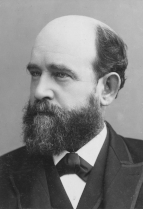Provincial and federal budgets loom: taxation is a hot topic.
The price of living in a modern, civilized nation, it nevertheless rankles when part of our earnings are deducted leaving less to spend on our families, every purchase incurring sales tax making life more expensive and shrinking our purchasing power, every enterprise paying what feel like fines for success.
Some pundits perennially complain of being taxed into the poorhouse, even as they drive fancy convertibles or build expensive home studios.
Despite undeniable benefits of high-quality accessible education, health care and transportation, it seems hard to find a direct connection between taxes paid and benefits received.
I just read a book that turns this entire topic on its head, suggesting we could have our modern, progressive society without paying any taxes at all!
In 'Land', Martin Adams demonstrates how the value we receive from owning land is created by the community rather than ourselves. He then makes the eminently fair proposition that we pay for the value the community creates and gives us, while keeping for ourselves the wealth we ourselves make or earn.
In practise, this would mean paying about 80% of the annual rental value of our land in 'community land contributions' that would fund all the public services we have come to expect, in exchange paying no tax for owning buildings, earning a wage, producing a good or service, or buying and selling.
All taxes would go away, replaced by a single payment in direct proportion to the economic benefits we receive.
But could such a system be fair and progressive? By George, yes!
As Adams shows in his analysis of progress and poverty, taxation puts unhealthy burdens on the average income, while empowering those with large land or resource holdings to collect rent from the rest of us largely untaxed.
Yet they didn't create what our rent is buying: they didn't make the land or the resources under it, they only claimed it as their own, while the surrounding community made that location desirable.
Even though we were all born to this planet and, in all fairness, the Earth belongs to everyone, some people make us pay them merely to live on this planet, holding real estate for ransom. Our supposed capitalist free market is actually a predator culture of rent-seekers.
Paying land rent to the community instead of to private landlords would not cost any more for anyone who rents land, it would just change who receives the payments. And it would end the inefficient misuse of land, including things like urban decay and sprawl, because it would penalize wasteful land use, rewarding efficient and productive enterprise.
Each person or business would only want to own as much land as they actually needed; this would have the side benefit of reducing the stress our expanding cities put on the natural world.
As shown in the book's charts, appendices, and links, this measure would make housing more affordable, end the boom/bust cycle by designing a depression-free economy, and unleash innovation and ecological living. It would truly provide a better way of sharing the earth, perhaps even be the silver bullet for most of the woes of the modern world.
If you find these goals worthy, then I highly recommend getting your own copy of 'Land' to learn how it's all possible.
Erich Jacoby-Hawkins is a director of Living Green and the Robert Schalkenbach Foundation. Comment on Root Issues at www.ErichtheGreen.ca.

